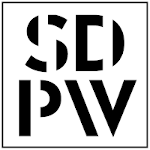Wykaz obszarów badawczych:
| # | Research Area | Dziedzina naukowa |
|---|---|---|
| 1 |
Development of a lab-on-a-chip system to improve sperm parameters
Infertility is a global health problem that affects a large part of the population. One of its causes is male infertility, which has been increasing for some time. Thanks to assisted reproductive methods, it is possible to solve this problem to some extent. Therefore, there is a need not only to conduct tests that assess the quality of sperm, but also those aimed at selecting normal sperm (then used in the in vitro method).
The aim of the doctorate is to develop a microsystem enabling the selection of appropriately motile sperm with the correct structure. After introducing sperm into the microsystem, it will be possible not only to track their movement, but also to study their response to various types of stimuli (e.g. chemical compounds, temperature). Thanks to the developed lab-on a-chip system, it will be possible to select sperm with the best parameters (due to the possibility of using them in in vitro fertilization) from the analyzed sperm. One of the key features of the developed microsystem will be effective selection, characterized by both high efficiency and selectivity (only clinically useful amount of sperm is obtained). The selected sperm can then be used to fertilize the egg in an in vitro procedure. This would increase the chance of obtaining a healthy (normal) embryo, and thus increase the effectiveness of the in vitro procedure.
|
Chemical-Sciences |
| 2 | Development and application of magnetic nanoparticles in the procedure of photothermal therapy Photothermal therapy involves the use of local heating of the tissues, resulting in the “relaxation” of the cell membrane and denaturation of the proteins, leading to cell death. In this therapy, photothermal “factors” are used that absorb the radiation of the laser and loose delivered energy by thermal emission. Selected types of nanoparticles can be used as photoactive agents. The PhD thesis will be aimed at designing nanoparticles with magnetic properties that can be used in photothermal therapy. The use of appropriate modification of the surface of nanoparticles will be aimed at limiting their cytotoxicity, extending their biodistribution or directing their penetration into tumor cells. Properly designed nanoparticles of this type should have unique magnetic and photothermal properties, and at the same time be characterized by good biocompatibility and easy functionalization. It is important that the obtained nanoparticles absorb electromagnetic radiation in the near infrared region, because for wavelengths in this range there is the so-called tissue biological window. | Chemical-Sciences |
